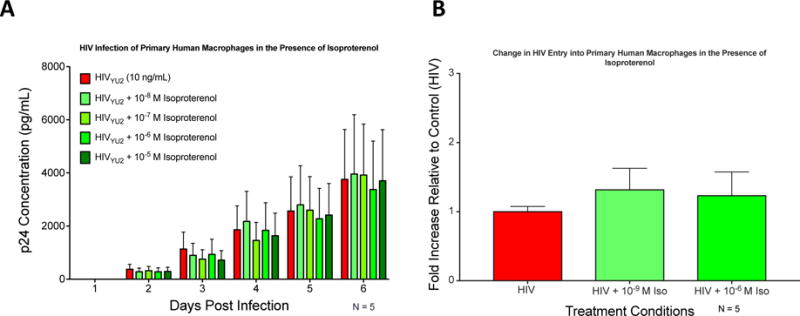Figure 4.

Activation of β-adrenergic receptors does not increase HIV infection in human macrophages. Human macrophages were generated from peripheral blood mononuclear cells that were isolated from whole blood by ficoll density centrifugation, then matured into monocyte-derived macrophages (MDM) by adherence and maturation for 6 days in 10 ng/mL M-CSF. (A) MDM from 5 donors were infected with 10 ng•p24/mL of the brain-derived R5 virus HIVYU2 for 24 hours in the presence (greens) or absence (red) of the isoproterenol (β-adrenergic receptor agonist). Cells were washed after 24 hours and supernatant was collected every 24 hours for 6 days as assayed for p24•Gag as a measure of viral replication. (B) MDM from 5 donors were infected for 2.5 hours with a modified HIVBaL, a lung derived R5 virus, containing an active β-lactamase enzyme, enabling visualization of entry within 9 hours of inoculation. Infections were performed in the absence (red) or presence (greens) of isoproterenol. After 2.5 hours cells were washed to remove excess virus, and incubated in CCF2-AM (ThermoFisher) for 6 hours. After 6 hours, cells were imaged and the percentage of infected cells was enumerated by fluorescent microscopy. Amount of infection displayed as fold change relative to infection with HIV alone, which was set to 1. Statistical analysis for both experiments performed using one-way repeated measures ANOVA.
